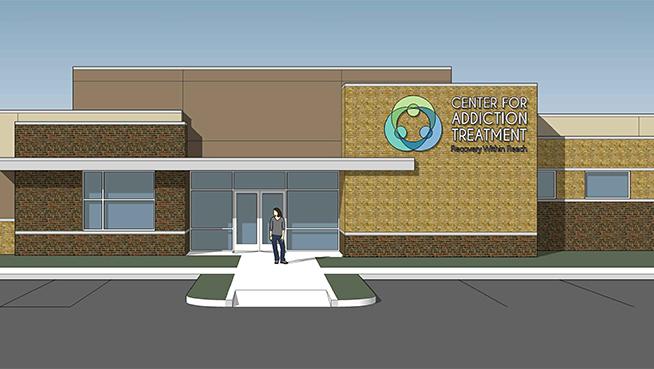Reliable Techniques: Reviewing the Ideal Addiction Treatment Center
Wiki Article
Navigating the Journey of Cleansing in the Comprehensive Dependency Therapy Program
Starting the path of detoxification within the framework of a thorough dependency therapy program is a pivotal phase in the journey towards recovery. The process of cleansing holds a substantial function in breaking the physical dependancy on materials and preparing the person for the succeeding phases of therapy. Nonetheless, browsing with detoxification is not simply an issue of physical cleansing; it entails a complex interplay of psychological, psychological, and social factors that require careful consideration and assistance. As individuals grapple with the obstacles of withdrawal signs and symptoms and the uncertainties that lie in advance, having an organized plan and a robust support system in position ends up being critical. In this discussion, we will check out the multifaceted facets of detoxing within the detailed addiction therapy program and dropped light on the vital components that shape this transformative trip towards recovery.Significance of Detoxing in Recovery

Cleansing sets the structure for the remainder of the dependency treatment program by preparing the person for additional therapy and therapy. By cleaning the body of materials that have actually been clouding judgment and influencing habits, detox makes it possible for clients to approach their recuperation with a clearer mind and stronger emphasis.
Additionally, detoxing helps in managing the possibly serious withdrawal signs that may occur when drug or alcohol usage is quit. Doctor carefully keep track of clients during detoxification to guarantee their security and provide necessary assistance. Via this procedure, people can begin their journey in the direction of sobriety with a stabilized psychological and physical state, boosting the possibility of a successful recovery.
Understanding the Detoxification Process
Detoxing, an essential element of dependency therapy programs, involves a structured process targeted at safely eliminating unsafe materials from the body to assist in a successful recuperation journey. The detox procedure generally starts with an examination to evaluate the person's compound usage history, physical wellness, and psychological well-being. This analysis helps medical care professionals figure out the most proper detoxification plan customized to the individual's demands.During detoxification, the body experiences withdrawal as it gets used to the lack of the substance. Withdrawal signs and symptoms differ depending on the kind of substance utilized, the period of use, and private variables. Medical supervision throughout detox is crucial to handle withdrawal signs and symptoms and ensure the individual's safety and security and convenience.

Managing Withdrawal Signs And Symptoms

Medications may be made use of to reduce certain withdrawal signs and lower click for source discomfort. Medicines like methadone or buprenorphine can aid manage opioid withdrawal symptoms, while benzodiazepines may be used for alcohol withdrawal. It is necessary for doctor to meticulously monitor the individual's reaction to these medicines to guarantee their safety and security and effectiveness.
In addition to pharmacological interventions, helpful treatments such as therapy, peer support groups, and holistic practices like mindfulness reflection or yoga can aid people cope with the emotional and emotional obstacles of withdrawal. By attending to withdrawal signs adequately, healthcare providers can improve the cleansing experience and support individuals on their journey to recovery.

Support Systems During Detox
Support group play a critical function in providing social and emotional support to people going through detoxing in dependency therapy programs. Throughout the detoxification procedure, people often experience a series of mental and physical withdrawal signs, making this phase tough - Addiction Treatment Center. Having a strong support group in position can dramatically influence the individual's ability to navigate with detox successfullySupport groups give a platform for people to connect with others that Get More Info are going through similar experiences, using a sense of area and shared understanding. Medical care professionals, consisting of doctors, specialists, and counselors, play a crucial function in checking the individual's development, providing medical assistance, and supplying assistance throughout the detoxification procedure.
Looking Ahead: Life After Detox
Having effectively finished the detoxing stage, individuals in addiction treatment programs now concentrate on planning for the obstacles and possibilities that exist in advance in their trip in the direction of recuperation. Life after detoxification notes a critical transition duration where individuals should remain to build on the development made during detox to maintain their sobriety. It is important for individuals to recognize that the journey in the direction of recuperation is recurring and calls for devotion, dedication, and a willingness to accept change.One secret element of life after detox is the advancement of dealing systems to take care of triggers and food cravings that may occur. This may entail finding out new skills, such as mindfulness practices, cognitive-behavioral strategies, and anxiety administration techniques, to navigate tough scenarios like it without considering material use. Additionally, people are motivated to actively involve in continuous therapy, assistance groups, and aftercare programs to strengthen their assistance network and get guidance as they navigate the intricacies of life post-detox.
Verdict
Comprehending the detoxification process and handling withdrawal signs and symptoms are vital actions towards healing. It is vital to acknowledge the value of detox in the procedure of conquering addiction and moving in the direction of a life of sobriety.Clinical supervision during detoxification is crucial to take care of withdrawal symptoms and guarantee the person's security and convenience.
By recognizing the detox procedure and its significance in damaging the cycle of addiction, individuals can begin on a course in the direction of lasting recuperation.
Throughout the detox process, individuals usually experience a variety of physical and psychological withdrawal signs, making this phase difficult. Medical care specialists, including counselors, physicians, and therapists, play an essential role in monitoring the individual's progress, supplying medical support, and providing guidance throughout the detox procedure.
Life after detoxification notes a crucial change duration where people need to continue to build on the progress made throughout detoxification to preserve their sobriety.
Report this wiki page